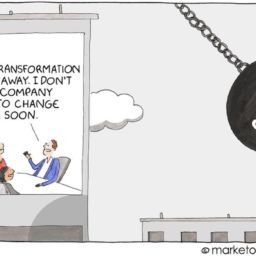
Times like these test our endurance, resilience and compassion. We’ve experienced challenges in our lives, before, and have always overcome, or at least adapted. Such times always feel unprecedented, and indeed they often are. For COVID-19, it’s perhaps the impact in every local community that’s most notable. Much remains unknown about this virus. Given the number of mild cases that likely go underreported and the lack of universal testing, it’s difficult to fully quantify the breadth of the contagion. Hence, the rationale for social distancing.
The 1918 influenza pandemic, otherwise known as the Spanish flu, was an H1N1 virus that is estimated to have infected 500 million people, or nearly a third of the world’s population at that time. A mortality rate as high as 10% was attributed to the pandemic, resulting in an estimated 50 million deaths. With limited health apparatus, and no vaccines, antiviral medications or antibiotics to treat the most serious bacterial complications, like pneumonia, the tools to fight the 1918 pandemic were very limited.
Of course, more than 100 years later, the science of virology has advanced considerably. Today, state of the art capabilities deployed against COVID-19 allow scientists to sequence viral genomes, search extensive databases, and utilize new technologies to run simulations, derive insights, and collaborate. Still, some of the same tactics to fight a pandemic remain: quarantine, good personal hygiene, use of disinfectants, and limitations of public gatherings. Some of the same challenges also remain: the still limited, though improving availability of testing; the potential to overwhelm the capacity of our healthcare system; the insufficient supply of protective gear for our first-responders and medical staff; the psychological toll attributable to outright fear, shelter-in-place directives, and financial concerns; and the economic fallout on businesses, families and individuals that may far outlast the pandemic, itself.
So, as business leaders and individuals, what can we do to manage through this pandemic, and hopefully lessen its impact?
Put people first
More than anything, this is an ideal to which we should always aspire, pandemic or not. We’re all experiencing this crisis in our own ways. Be mindful of the health, psychological and financial impacts that this may be having on people you know. Recognize that work productivity will likely fall, perhaps precipitously, as people worry about the well-being of their families and themselves, adjust to extended remote work arrangements, care for children or sick household members, or battle depression. Reach out to those who live alone, even if just to let them know that you’re thinking about them: as difficult as quarantines and stay-at-home policies are for most of us, it’s likely to be even more difficult for those who live alone. When you feel stressed, as many do, it’s helpful to know that you’re not alone. To that end, share a hug…er…elbow bump, a call or a note with your family, friends and colleagues. Empathize; discuss a personal, or business opportunity; tell a joke.
Heed the guidance of public officials, law enforcement and healthcare providers
On-the-ground information is moving, quickly, and we’re dealing with the kind of crisis that most of us have never before experienced, including our public leaders. Some public information and actions may be delayed, misrepresented or flat out wrong. Don’t expect perfection. Sometimes, this is a byproduct of organizational bureaucracy, but this is a worldwide pandemic, and most sovereign governments are not designed to be nimble. There’s also a tightrope to be walked between balancing public safety and maintaining optimism, and there are reasonable differences between how best to strike such a balance. Nonetheless, our public officials may have access to contemporaneous data that is not yet available to the average citizen, so if they issue guidance or ordinances to help fight this pandemic, it’s our civic duty to comply. For some businesses, it’s also important to maintain an active line of communication with officials to enhance coordination, particularly if a business operates across multiple regional jurisdictions.
Over-communicate
Regular communication with family, friends, work colleagues, suppliers, clients, students and others is critically important. Leaders, in particular, must be empathetic and mindful of both personal and institutional challenges, while also doing their level best to make the abnormal feel normal. Whereas opportunistic engagement and water-cooler chatter in the workplace may have complimented things, like ideation, project management, programmer pairing and camaraderie, the work-from-home dynamic requires far more proactive outreach and communication. Clients, too, need to understand if, or how you can continue to service their business needs, including any changes to operations, working conditions, delivery timeframes, and contact protocols. Using a combination of emails, social networking posts, and personal outreach is recommended.
Manage and monitor your business continuity plans, and performance
For some businesses, BCP has anticipated the use of geographically disperse facilities, including for remote “war rooms” and desks. In the case of a pandemic, however, those plans are no longer effective, given the constraints around social distancing and group gatherings, now limited to 10 people in some jurisdictions. With so many now working from home, the network and system infrastructure of both private and public remote work platforms is surely taxed, as exemplified by access, quality-of-service and performance degradation. If your company utilizes hosted desktop and application platforms, like Citrix or RDS, it’s important to ensure that your infrastructure can handle the peak load and that you have sufficient licensing. If not, you will want to more selectively provision services to the people that need them, and during the hours when they are most likely to need them. Public platforms, like Skype and Zoom, are also subject to a significant jump in concurrent utilization, and may therefore be more susceptible to performance hits and run-rate/cost increases. Finally, there is the last-mile connection to your workforce. Not everyone has high-speed broadband and, even for those that do, network carriers may prioritize, or degrade certain traffic as local network conditions dictate.
Be mindful of bad actors
Yes, sad as it may be, there are still nefarious individuals who will attempt to take advantage of this crisis. As remote access becomes the operational norm for many businesses during this time, the likelihood of cyber-attacks may unfortunately increase. This may take several forms, including variants of phishing, denial of service, password attacks, eavesdropping, malware and others. As network traffic ramps up, activity that may have previously appeared as an atypical spike may now seem ordinary. Therefore, constant monitoring of the origination and volume of such traffic is important. Similarly, some private infrastructure and networks may not be as hardened against such attacks, making them easy targets. Network security at large financial, and other highly-regulated institutions that maintain sensitive data is typically more robust, though they continue to represent trophy targets. Cybersecurity is also only as strong as the weakest link. Ensure the use of strong passwords and periodic password updates, along with multi-factor authentication. If you don’t direct remote workers to remote desktop or secure web applications, for example, phishing attacks or malware on their personal devices may compromise the company network.
Don’t forget about small and medium-sized businesses, local businesses, and gig-workers
The economic toll of COVID-19 may ultimately prove to be greater than the physical toll. In our lifetimes, we have never before witnessed the mandated, mass closings of so many businesses. This is especially true in the retail, food services, travel and entertainment sectors, but the impact is far and wide. According to the World Bank, small and medium enterprises (SMEs) represent 90% of businesses and more than 50% of employment, globally. In the United States, small businesses create two-thirds of net new jobs, and accounted for 44% of GDP when last measured in 2018. While this contribution to GDP is down from 50% in prior years, some of the downturn is attributable to the residual impact of the 2008 financial crisis, and the number does not yet fully reflect the increase in the gig economy. Patronizing these businesses, whether for business or family benefit, sends a lifeline to them and to the economy. This includes not only your local restaurants that offer takeout and delivery, but also temp staff and independent contractors who may provide valuable services to your business.
Compassion is a smart business move
When this crisis is finally over…and, make no mistake, it will end…people will remember the kind acts of others, both personally and professionally. Throughout my life, I’ve always sought to treat others as I would want to be treated. While I’ve not always succeeded in achieving this goal, it has never been for lack of want. In times of need, this mantra is even more important. Businesses that adapt policies, procedures and terms, as warranted, to meet these extraordinary times and circumstances will ultimately emerge as winners across branding, sales and loyalty. And this will hold true with staff, partners, suppliers and clients. For financial institutions that were cast as pariahs during the 2008 meltdown, COVID-19 ironically presents a unique opportunity for a reset. By leading with compassion and working with small businesses and individuals, in particular, to meet current and forthcoming financial challenges, you generate goodwill. Moreover, by restructuring terms, you can reduce the number of write-offs that are otherwise likely to occur, thereby benefiting investors and shareholders, too.
Stay safe and healthy
What more really needs to be said about this point? Whenever I encountered adverse consequences in my youth, my mother would often remind me that “this too shall pass”.
And, so, it will.









